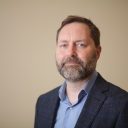The H&S Davidson Trust (HSDT) was founded in 2004 to help transform the lives of very low-income families, especially women and girls. In pursuit of this aim, our past work has focused on empowerment and livelihoods in locations in the Global South (India, Bangladesh, and Vietnam).
We embraced the belief that funders like us can play an influential role in advancing innovative or ‘riskier’ initiatives, and for several years we co-funded work with INGOs expecting that the initiatives could be scaled up and replicated when they were successful. As with all pilots, some worked well while others didn’t. While this was expected, what seemed curious was that there appeared to be little knowledge sharing on what worked and what didn’t, both within the ‘implementing’ INGO and between INGOs. In all honesty, or perhaps naivety, this surprised us. There was so much learning and informative data generated but, rather than using the information to amplify successful approaches to inform others, the data seemed to remain a component of wrapping up and closing down the completed initiative. This seemed a missed opportunity to us as learning and insights had almost no part to play in informing new ways of thinking and doing.
HSDT’s founder, Hugh Davidson, and the other trustees wanted to find out more about the reasons behind this repeated missed opportunity. Many of the trustees had had professional careers in businesses where data on what did and didn’t work well was used a lot to good effect in scaling up. It prompted us to reflect on our approach and embark on a research study with Jigsaw Research that was designed to investigate the dynamics of ‘scaling up’ based on views from funders, INGOs and community organisations. Rather than delivering an epiphany moment, this led to a learning journey for us. We found out that the reason that scaling up was not happening had very structural roots, it wasn’t a case of just being better and more determined about sharing data. A literature review pointed to a deeply flawed and problematic ‘international development system’ that was unfit for purpose.
As part of our desire to listen and learn, the research pivoted to understand what needed to change. We heard that there is no single silver bullet, and that root and branch reform was required. Alongside all the issues identified, people also shared examples of what could help support the change needed – not quick solutions necessarily but rather ‘entry points’ around which there was consensus to help nurture the conditions for deeper transformation. These entry points for change were INGO role change; better funding; enhanced collaboration and knowledge sharing; and equal voices – and for HSDT, #RID was born.
#RID is the acronym we’ve adopted for ‘reforming international development’. This may sound like a bold ambition for a small trust like ours– and it is – but seismic shifts need us all. This understanding became even clearer when I joined 700 other people in Bogotá for the #ShiftThePower convening. Initially, I thought this was going to be a daunting space, perhaps even a bit intimidating. Funders are often seen as, and unintentionally often are, part of the problem with respect to an effective international development system. While HSDT has always endeavoured to be a ‘good funder’, we won’t have always got ‘it’ right and we certainly don’t have all the answers now. But we’re committed to learning and to responding to what we learn.
For HSDT, Bogotá was an opportunity to connect with those who ‘know better’, and this has led us to try and ‘do better’. While it was inspirational to hear experiences from so many different contexts, I was struck by clear consensus areas, namely: the time for talking is over; change is already happening out of necessity – often in small and isolated pockets of activity but it’s there; and change starts with us. I’d often felt that this was an overly used phrase but having listened to so many change-makers in Bogotá, it now resonates. Without individual change, there can be no collective change, and without collective change, nothing will ever change.
This realisation is an important part of our #RID journey. While we might be small compared to other funding organisations, we’re steadfast in our belief that we all have a role to play, both in modelling the change we want to see, and as funders, in funding and amplifying the change required. The stark reality is that funders need to step up, stand with, and support those seeding and nurturing new ways of being, doing and deciding. If funders fail to fund different routes to change and fail to fund opportunities for the routes to come together, then we will lose energy and find ourselves forever talking and never transforming.
This is why as part of our commitment to #RID, we’re making four positive pathways grants to Pledge for Change, ADD International, Fair Funding Solutions and the Inclusion Fund. More information can be found here. These initiatives and organisations are all working to identify the system we want and showing ways to obtain it. As noted by Kate Moger, Global Director of Pledge for Change, this is about ‘sharing a mutual commitment to building a stronger ecosystem based on the principles of solidarity, humility, equality, and self-determination.’ We hope our grants can support and amplify positive pathways so that others can see them, follow them, or adapt them for their transformation purposes.
So, this is a clarion call to other funders. Regardless of your size, seize your capacity for risk taking and innovation. Look beyond the mainstream to find and fund the change the system so desperately needs.
Bruce Davidson is the Chair of the H&S Davidson Trust






Comments (0)